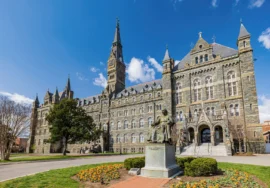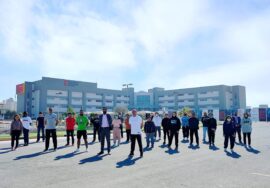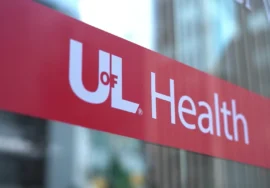
Mohammad Saad Khan – Advancing Clean Water and Energy Through Innovation at KFUPM
Introduction: At the Crossroads of Water Security and Sustainable Energy
In an era where environmental sustainability is no longer optional, the work of scientists who bridge water purification, clean energy, and climate resilience is crucial. Among such innovators is Mohammad Saad Khan, a Post-Doctoral Fellow at King Fahd University of Petroleum & Minerals (KFUPM), working in the Interdisciplinary Research Center for Membranes and Water Security. His research touches on some of the most pressing challenges of our time: ensuring clean water access, reducing carbon footprints, managing energy consumption, and safeguarding ecosystems. With expertise in chemical engineering, multiphase flow, gas hydrates, desalination, CO₂ capture, and solar refrigeration, Mohammad Saad is contributing to projects that aim to fulfill several of the United Nations’ Sustainable Development Goals (SDGs).
This blog explores his academic journey, research areas, projects, challenges, impact, and vision, including what it means for sustainable technology in the Middle East and beyond.
Academic Foundations: The Roots of Expertise
Mohammad Saad Khan obtained his PhD in Chemical Engineering from Universiti Teknologi PETRONAS in Malaysia, awarded on 19 March 2019. This advanced training provided him with a deep understanding of thermodynamics, fluid flow, separation processes, reactor design, and environmental technology. Malaysia’s context of tropical climate, energy production, and oil/gas industry likely influenced his early academic inclinations toward energy and water synergy.
Before his doctoral work, his academic and educational background must have included rigorous undergraduate studies (not detailed in his public profile) shaping the technical foundations needed for advanced research. His later appointment at KFUPM places him in one of the Middle East’s most research-intensive universities, especially in oil, gas, energy, and environmental engineering domains. His role at the Interdisciplinary Research Center for Membranes and Water Security expresses a commitment to multidisciplinary problem solving a necessity when dealing with complex issues like water scarcity and clean energy.
Research Themes: Key Areas of Focus
Mohammad Saad’s research revolves around multiple interconnected themes. These include:
Gas Hydrates and Multiphase Flow
Gas hydrates are crystalline structures where gas molecules (often methane or CO₂) are trapped within water molecules under specific pressure and temperature conditions. These pose both opportunities (e.g., gas production, energy storage) and challenges (e.g., hydrate blockages in pipelines). Mohammad Saad has contributed to research in phase behavior predictions of gas hydrates, their formation in saline water under various conditions, and thermodynamics associated with hydrate formation.
CO₂ Capture & Clean Energy Technology
As climate concerns accelerate, capturing and storing carbon dioxide is key in many environmental strategies. Mohammad Saad’s work includes CO₂ capture from emissions and integrating clean energy technologies such as solar refrigeration—an energy-efficient cooling system using sustainable energy inputs.
Desalination & Water Security
Water scarcity is a growing threat, particularly in arid and semi-arid regions. Desalination of produced water water that arises as a byproduct during oil/gas extraction or industrial processes is one route to supplement water supply. Mohammad Saad’s research includes desalination via CO₂ hydrate methods, including filter-based hydrate desalination reactors. These processes can offer lower energy consumption and reduced environmental impact compared to conventional desalination methods.
Data-Driven Models, Leak Detection & Multiphase Flow Assurance
Another strong thread in his scholarship is using statistical, machine learning, and signal-processing techniques to understand and mitigate flow assurance challenges issues that can include hydrate formation, liquid loading, gas-liquid interfaces, pipeline safety, leaks, and pressure fluctuations in multiphase flows. For example, he co-authored work titled Comprehensive analysis of leak impacts on liquid-gas multiphase flow using statistical, wavelet transform, and machine learning approaches.
Major Projects & Publications
Mohammad Saad has an extensive publication record: over 55 articles and multiple conference contributions in recent years. Some notable recent works include:
- Advancing offshore pipeline safety: Exploring non-invasive Electrical Resistance Tomography for upstream leak response detection Strategy (Flow Measurement and Instrumentation, Dec 2025) a project that seeks to improve early detection of pipeline leaks using non-invasive imaging methods.
- Comprehensive analysis of leak impacts on liquid-gas multiphase flow using statistical, wavelet transform, and machine learning approaches (2025).
- Phase behavior prediction model and enthalpy analysis of carbon dioxide/propane gas hydrate formation in salts water, among others.
- Desalination of produced water via carbon dioxide hydrate using filter-based hydrate desalination reactor directly tied to water treatment technologies.
These works show not only breadth (different applications and industrial relevance) but also depth—publishing in peer-reviewed journals, pushing experimental methodologies, and incorporating computational and theoretical components.
Role at KFUPM & Interdisciplinary Collaborations
At KFUPM, Mohammad Saad’s affiliation with the Interdisciplinary Research Center for Membranes and Water Security situates him at a nexus of different fields chemical engineering, environmental science, energy technology, and materials science. Such cross-domain collaboration is essential for solving real-world problems like clean water access, sustainable cooling, and carbon management.
His work often involves collaborating with experts in pipeline engineering, thermodynamics, data science, fluid mechanics, and environmental policy. Additionally, his publication record shows external collaborations across countries and institutions an indicator of his international reach and the applicability of his research beyond Saudi Arabia.
Applications & Industrial Relevance
Mohammad Saad’s work is not just theoretical. Many projects are directly relevant to industry needs:
- Ensuring pipeline safety (critical for oil and gas industries) through leak detection and flow assurance.
- Improving oil and gas production efficiency, especially in multiphase flow conditions where gas, liquid, and sometimes solids travel together.
- Designing desalination systems that could treat industrial produced water or unconventional water sources, helping with water scarcity.
- Contributing to carbon capture strategies, which are increasingly mandated or incentivized under global climate megatrends.
These work areas offer opportunities for impact: lowering costs, improving safety, reducing environmental damage, and supporting regulatory compliance in energy climates.
Challenges Faced in Research & Innovation
Research in these technical fields comes with its own challenges:
- Scaling laboratory findings to industrial scale: methods that work in small reactors or controlled lab settings often face hurdles of cost, reliability, and materials at scale.
- Energy consumption and economics: desalination, hydrate-based processes, or CO₂ capture often need large energy inputs unless optimized carefully.
- Material durability and membrane performance in water purification or in harsh chemical environments.
- Regulatory and environmental constraints, especially in Saudi Arabia and the Gulf where temperatures, salinity, and regulatory frameworks impose limitations.
- Funding and resource allocation: some projects require specialized equipment or field testing, which may stretch budgets and institutional capacity.
Nonetheless, Mohammad Saad’s record shows he is navigating these challenges through rigorous publications, collaborations, and working at institutions that support high-end research.
Impact on Sustainability & SDGs
Mohammad Saad Khan’s research meaningfully contributes to several United Nations Sustainable Development Goals:
- SDG 6: Clean Water and Sanitation through his work on desalination, water purification, and produced water treatment.
- SDG 7: Affordable and Clean Energy via solar refrigeration, energy efficient hydrate-based processes, and clean technology.
- SDG 13: Climate Action through CO₂ capture and reducing environmental emissions.
- SDG 9: Industry, Innovation and Infrastructure with innovations in pipeline safety, fluid flow assurance, and technologies adaptable to industrial settings.
These contributions position him not only as a researcher but also a contributor to global goals of sustainable development.
Recognition and Metrics
Though exact h-index numbers are not shown in some sources, his profile indicates moderate to strong citation levels, multiple articles, and more than a dozen conference contributions. Further, his Scopus and ORCID profiles show consistent output since his PhD in 2019. The fact that his work appears in high-quality journals and involves multidisciplinary collaboration adds to his academic credibility.
Vision & Future Directions
Looking forward, possible areas of future growth and impact include:
- Scaling technologies: bringing hydrate-based desalination or CO₂ capture from lab to pilot or industrial scale.
- Membrane materials research, improving durability, lower cost, higher selectivity in water purification.
- Machine learning and smart sensing for leak detection, flow monitoring, and predictive maintenance of pipelines.
- Integration of renewable energy with water and cooling systems, especially in hot climates.
- Policy engagement and collaboration with industry, ensuring research outcomes inform regulations, environmental mandates, and industrial practices.
His leadership in interdisciplinary centres provides a platform for larger projects and greater impact.
Personal Attributes & Research Philosophy
From his publication style and choice of topics, Mohammad Saad appears to be detail-oriented, motivated by solving real environmental and engineering problems, and comfortable with both experimental work and modeling/data science. He seems to value collaboration, cross-field thinking, and addressing urgent global concerns, not just academic curiosity.
Conclusion: A Researcher Shaping Tomorrow’s Water & Energy Solutions
Mohammad Saad Khan’s work at KFUPM reflects an important narrative: academic research that doesn’t stay confined to journals but reaches into industry, climate policy, and societal well-being. Through his focus on water security, CO₂ capture, flow assurance, and clean energy, he is helping build sustainable technological paths for the future.
About Me – Muhammad Saad, SEO Specialist
While this article celebrates Mohammad Saad Khan, researcher in chemical engineering and water security at KFUPM, I am also Muhammad Saad, a Pakistan-based SEO Specialist and Digital Marketer. My expertise lies in helping organizations improve their online presence, raise visibility in search engines, and craft content that resonates with audiences and meets technical SEO standards.
You can view my portfolio and case studies at muhammadsaad.exytex.com.
Two individuals, same name, different missions: he purifies water and secures energy; I clarify content and secure online reach.








